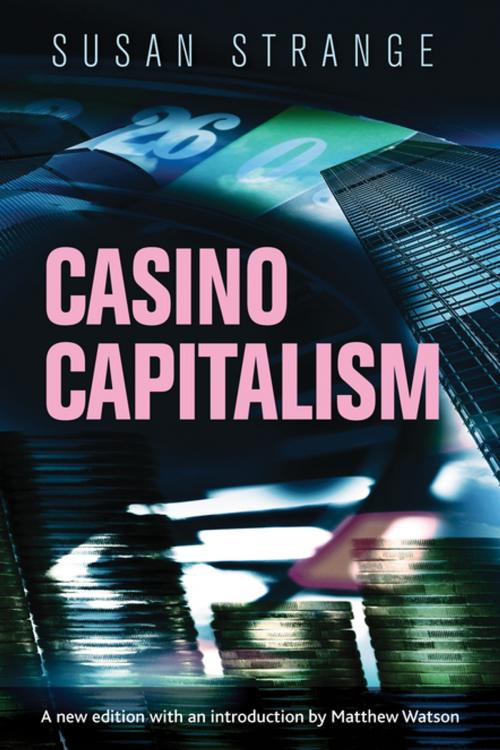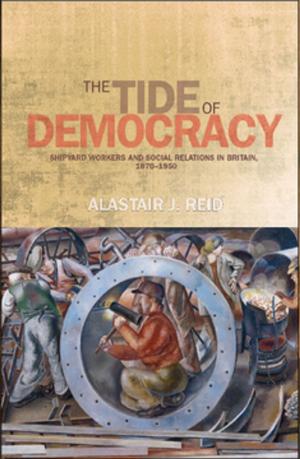Casino capitalism
with an introduction by Matthew Watson
Nonfiction, Social & Cultural Studies, Political Science, Politics, Social Services & Welfare, Economic Policy, Business & Finance, Economics| Author: | Susan Strange | ISBN: | 9781784996598 |
| Publisher: | Manchester University Press | Publication: | December 1, 2015 |
| Imprint: | Manchester University Press | Language: | English |
| Author: | Susan Strange |
| ISBN: | 9781784996598 |
| Publisher: | Manchester University Press |
| Publication: | December 1, 2015 |
| Imprint: | Manchester University Press |
| Language: | English |
Originally released by Basil Blackwell in 1986, and then re-released by Manchester University Press in 1998, Casino capitalism is a cutting-edge discussion of international financial markets, the way they behave and the power they wield. It examines money's power for good as well as its terrible disruptive, destructive power for evil. Money is seen as being far too important to leave to bankers and economists to do with as they think best. The raison d'être of Casino Capitalism is to expose the development of a financial system that has increasingly escaped the calming influences of democratic control. This new edition includes a powerful new introduction provided by Matthew Watson that puts the book it in its proper historical context, as well as identifying its relevance for the modern world. It will have a wide reaching audience, appealing both to academics and students of economics and globalization as well as the general reader with interests in capitalism and economic history.
Originally released by Basil Blackwell in 1986, and then re-released by Manchester University Press in 1998, Casino capitalism is a cutting-edge discussion of international financial markets, the way they behave and the power they wield. It examines money's power for good as well as its terrible disruptive, destructive power for evil. Money is seen as being far too important to leave to bankers and economists to do with as they think best. The raison d'être of Casino Capitalism is to expose the development of a financial system that has increasingly escaped the calming influences of democratic control. This new edition includes a powerful new introduction provided by Matthew Watson that puts the book it in its proper historical context, as well as identifying its relevance for the modern world. It will have a wide reaching audience, appealing both to academics and students of economics and globalization as well as the general reader with interests in capitalism and economic history.















